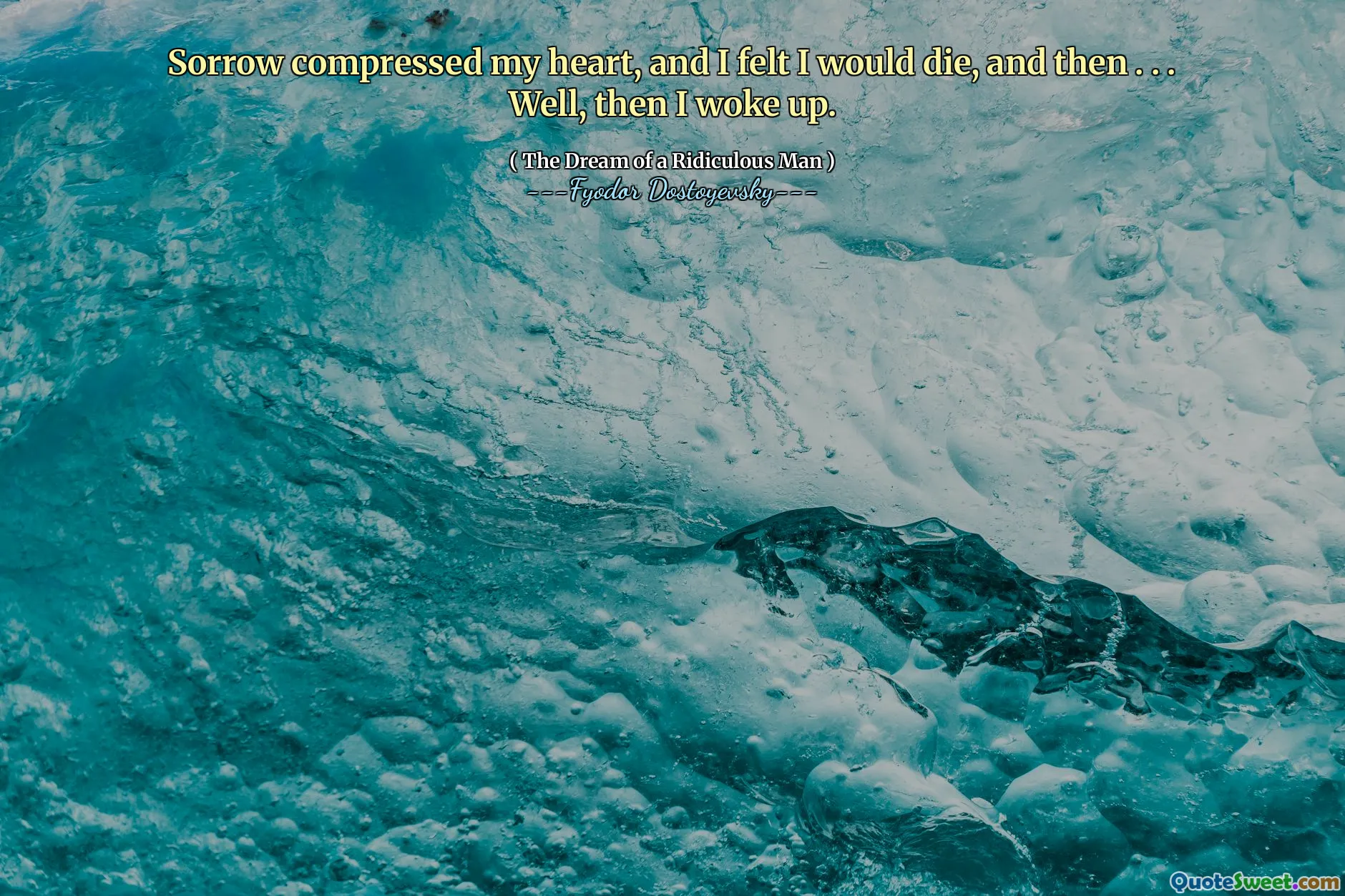
Sorrow compressed my heart, and I felt I would die, and then . . . Well, then I woke up.
This quote reflects a profound moment of existential despair interwoven with a realization or perhaps a sudden awakening. The feeling of sorrow being so overwhelming that it seems to crush the heart conveys the intensity of human suffering—emotional, spiritual, or even psychological. Such expressions evoke the universal experience of despair, a state where hope feels distant, and life itself appears burdensome. The phrase 'I felt I would die' underscores the depth of this anguish, yet the pivotal shift occurs with the abrupt awakening—possibly literal or metaphorical. It suggests that sometimes our suffering blurs the line between reality and illusions, and an unexpected shift or realization can rupture the darkness. In the context of Fyodor Dostoyevsky's 'The Dream of a Ridiculous Man,' this could denote that extreme despair ultimately leads to enlightenment or a moment of clarity—an awakening from a nihilistic or hopeless state, revealing the possibility of renewal or understanding. The imagery hints at the fragile boundary between despair and hope, emphasizing human vulnerability but also resilience. It invites reflection on how moments of intense suffering can lead to transformative insights, if we are open to awakening from our own mental or emotional slumber. In a broader sense, the quote resonates as a metaphor for life's transient nature—how pain, even overwhelming pain, can act as a catalyst for awakening and personal growth when confronted with the harshest realities.






